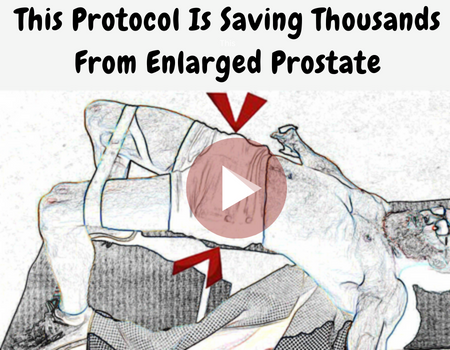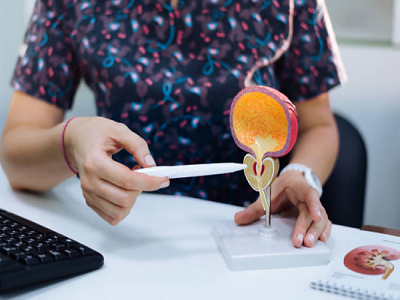Benign prostatic hyperplasia (BPH) is a condition where your prostate gland appears to be enlarged. The enlarged prostate can lead to urinary symptoms, such as difficulty urinating and a need to urinate more frequently. While BPH can be treated with surgery, there are also nonsurgical options that can relieve symptoms. In this article, we’ll discuss some of these nonsurgical treatments for BPH.
What is BPH?
In medical terms Benign prostatic hyperplasia (BPH) is a noncancerous enlargement of the prostate gland. In men, just below the bladder a small, walnut-shaped gland is located. The prostate surrounds the urethra, the tube that carries urine from the bladder to the penis. BPH problem mainly occurs when prostate cells begin to grow in size uncontrollably and can cause the gland to become enlarged and press against the urethra, making urination difficult.
Most of the men suffer from BPH as they age. It is estimated that 50% of men over the age of 50 have BPH, and it is even more common in older men. While BPH does not usually cause serious health problems, it can be uncomfortable and annoying. Fortunately, there are treatments available that can help relieve the symptoms of BPH.
If you have been diagnosed with BPH, your doctor may recommend watchful waiting or medication. Watchful waiting involves monitoring your symptoms and checking in with your doctor regularly, but not starting any treatment right away. This approach is often used for men who have mild symptoms that are not bothersome enough to warrant treatment. Medication is another option for treating BPH.
Signs and Symptoms of BPH
One of the most common signs of benign prostatic hyperplasia (BPH) is difficulty urinating. You may have a weak stream of urine, or you may have to urinate more often, especially at night. Other symptoms include:
- You feel bladder is not completely empty after you urinate
- Urinary urgency or leaking
- Painful urination
- Blood in your urine
If you are experiencing any of these symptoms, it’s important to see your doctor so they can confirm the diagnosis and recommend treatment options. While surgery is an option for some men, there are also nonsurgical treatments that can be effective.
Medical Treatments for BPH
There are a number of medical treatments for benign prostatic hyperplasia (BPH), which is an enlargement of the prostate gland. The most common treatment is medication, which can be taken in the form of pills, injections, or patches. Surgery is another option, but it is usually only recommended if other treatments have failed.
There are a number of different medications that can be used to treat BPH, and your doctor will likely prescribe one that is best suited for you based on your individual case. Some common medications include alpha blockers, 5-alpha reductase inhibitors, and antiandrogens. These medications can help to shrink the prostate gland and relieve symptoms such as urinary frequency and urgency.
In some cases, surgery may be recommended to treat BPH and only done if other treatments have failed or if the prostate gland is very large and causing severe symptoms. There are a few different types of surgery that can be done, and your doctor will discuss the best option for you based on your individual case.
Lifestyle Changes for BPH
If you have been diagnosed with benign prostatic hyperplasia (BPH), there are a number of lifestyle changes that you can make to help lessen your symptoms and avoid surgery. While BPH cannot be cured, these lifestyle changes can often provide significant relief.
One of the most important things that you can do is to maintain a healthy weight. Obesity is a major risk factor for BPH, so even losing a few pounds can help reduce your symptoms. Exercise is also important, as it can help improve urine flow and reduce urinary frequency.
You should also avoid caffeine and alcohol, as both can irritate the bladder and make BPH symptoms worse. Instead, drink plenty of fluids (especially water) to keep your urinary system flushed out. Try to urinate regularly, even if you don’t feel the need, to avoid bladder infections.
Finally, quit smoking if you haven’t already. Smoking increases the risk of BPH and can make existing symptoms worse. Making these lifestyle changes won’t cure BPH, but they can often provide significant relief from symptoms.
Home Remedies for BPH
If you have been diagnosed with benign prostatic hyperplasia (BPH), you may be wondering if there are any home remedies that can help relieve your symptoms. While there is no cure for BPH, there are several things you can do at home to help ease your symptoms and improve your quality of life.
One of the most important things you can do is to make sure you are drinking enough fluids so that your urine flows freely and help reduce the chances of urinary tract infections. Drink plenty of water throughout the day and avoid caffeine and alcohol, which can irritate the bladder.
You should also try to empty your bladder completely each time you go to the toilet. Avoiding holding in your urine can help reduce urinary frequency and urgency. Try to go to the toilet every four hours during the day, even if you don’t feel the urge.
Certain foods and supplements may also help ease BPH symptoms. Foods that are rich in antioxidants, such as berries and dark leafy greens, can help reduce inflammation. Supplements such as saw palmetto and beta-sitosterol may also help by shrinking the size of the prostate gland.
When to See a Doctor for BPH
If you have any of the following symptoms, you should see a doctor to rule out the possibility of severe BPH or may be prostate cancer:
- A urinary tract infection that doesn’t respond to antibiotics
- Blood in your urine or semen
- Erectile dysfunction
- Frequent urination, especially at night
- Feel difficult to urinate or having a weak stream of urine
- Painful urination
- Sudden onset of urinary retention (inability to urinate)
If you have BPH but don’t have any of the above symptoms, you may not need to see a doctor.
If you are diagnosed with Benign Prostatic Hyperplasia (BPH), there are a number of treatment options available to you that can help relieve your symptoms and improve your quality of life. While surgery is an option for some men, it is not always necessary. There are a number of nonsurgical treatment options that are effective in treating BPH, including medication, lifestyle changes, and natural remedies. It is always good to have a chat with your doctor about various treatment options and which one is right for you.

